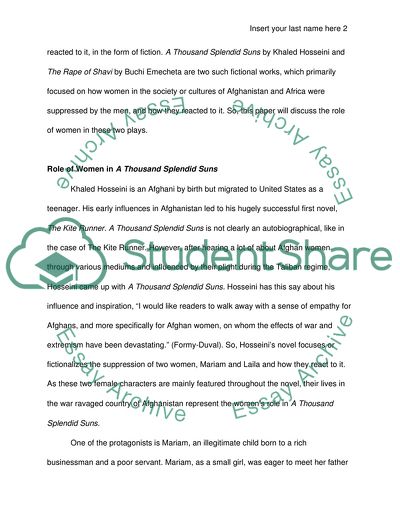Cite this document
(The Role of Women in A Thousand Splendid Suns and The Rape of Shavi Research Paper, n.d.)
The Role of Women in A Thousand Splendid Suns and The Rape of Shavi Research Paper. Retrieved from https://studentshare.org/literature/1747316-the-role-of-women-in-a-thousand-splendid-suns-and-the-rape-of-shavi
The Role of Women in A Thousand Splendid Suns and The Rape of Shavi Research Paper. Retrieved from https://studentshare.org/literature/1747316-the-role-of-women-in-a-thousand-splendid-suns-and-the-rape-of-shavi
(The Role of Women in A Thousand Splendid Suns and The Rape of Shavi Research Paper)
The Role of Women in A Thousand Splendid Suns and The Rape of Shavi Research Paper. https://studentshare.org/literature/1747316-the-role-of-women-in-a-thousand-splendid-suns-and-the-rape-of-shavi.
The Role of Women in A Thousand Splendid Suns and The Rape of Shavi Research Paper. https://studentshare.org/literature/1747316-the-role-of-women-in-a-thousand-splendid-suns-and-the-rape-of-shavi.
“The Role of Women in A Thousand Splendid Suns and The Rape of Shavi Research Paper”, n.d. https://studentshare.org/literature/1747316-the-role-of-women-in-a-thousand-splendid-suns-and-the-rape-of-shavi.


